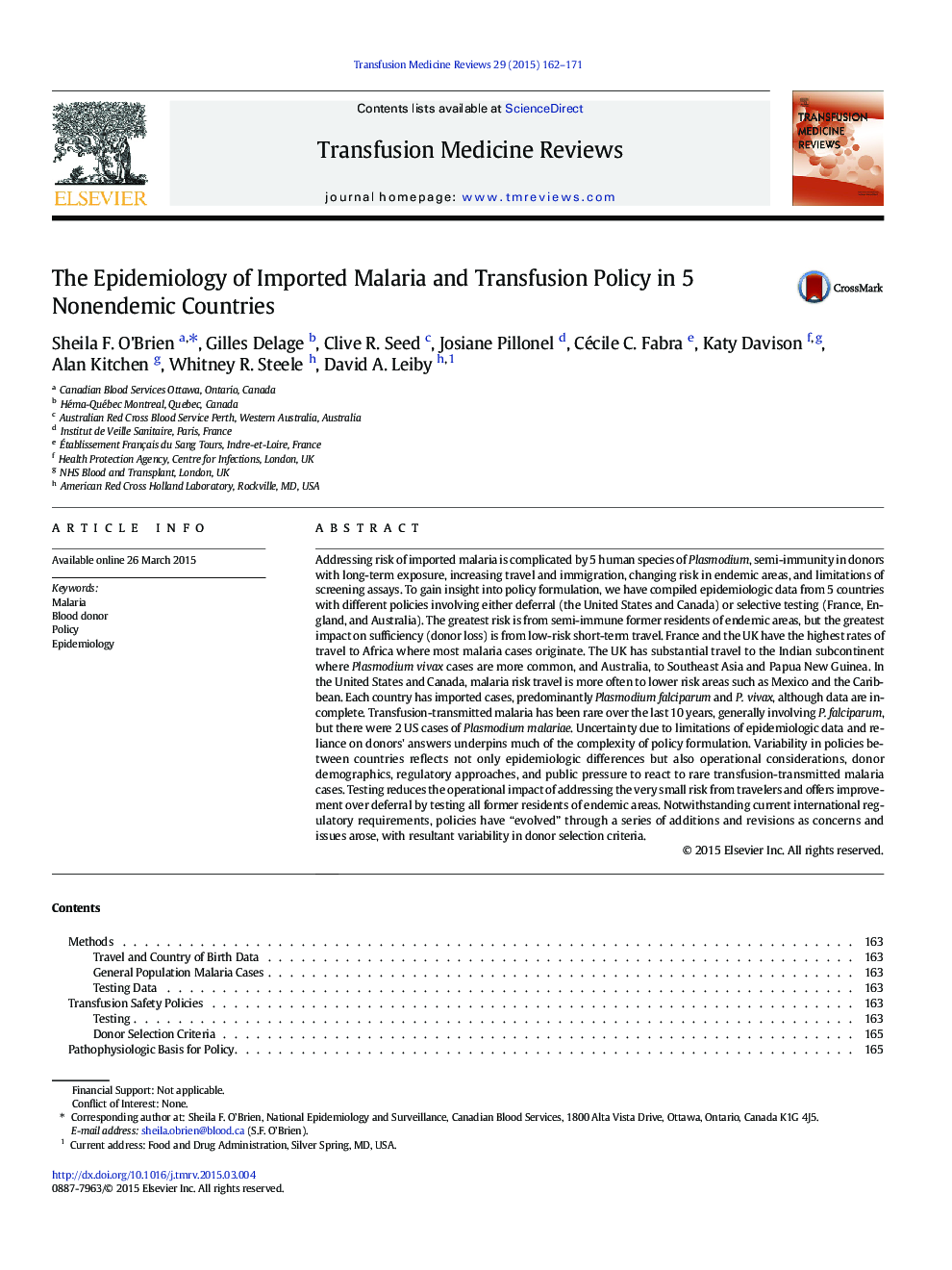| کد مقاله | کد نشریه | سال انتشار | مقاله انگلیسی | نسخه تمام متن |
|---|---|---|---|---|
| 3336474 | 1213606 | 2015 | 10 صفحه PDF | دانلود رایگان |
• We compared policies in 5 countries aimed to mitigate risk from malaria.
• We compared risk travel, imported cases, and transfusion transmission.
• Risk is greater from former residents of malaria endemic areas than from travelers.
• There was variability in travel, but transfusion transmission is rare.
• Policies reflect epidemiology, operational/regulatory approach, and public pressure.
Addressing risk of imported malaria is complicated by 5 human species of Plasmodium, semi-immunity in donors with long-term exposure, increasing travel and immigration, changing risk in endemic areas, and limitations of screening assays. To gain insight into policy formulation, we have compiled epidemiologic data from 5 countries with different policies involving either deferral (the United States and Canada) or selective testing (France, England, and Australia). The greatest risk is from semi-immune former residents of endemic areas, but the greatest impact on sufficiency (donor loss) is from low-risk short-term travel. France and the UK have the highest rates of travel to Africa where most malaria cases originate. The UK has substantial travel to the Indian subcontinent where Plasmodium vivax cases are more common, and Australia, to Southeast Asia and Papua New Guinea. In the United States and Canada, malaria risk travel is more often to lower risk areas such as Mexico and the Caribbean. Each country has imported cases, predominantly Plasmodium falciparum and P. vivax, although data are incomplete. Transfusion-transmitted malaria has been rare over the last 10 years, generally involving P. falciparum, but there were 2 US cases of Plasmodium malariae. Uncertainty due to limitations of epidemiologic data and reliance on donors' answers underpins much of the complexity of policy formulation. Variability in policies between countries reflects not only epidemiologic differences but also operational considerations, donor demographics, regulatory approaches, and public pressure to react to rare transfusion-transmitted malaria cases. Testing reduces the operational impact of addressing the very small risk from travelers and offers improvement over deferral by testing all former residents of endemic areas. Notwithstanding current international regulatory requirements, policies have “evolved” through a series of additions and revisions as concerns and issues arose, with resultant variability in donor selection criteria.
Journal: Transfusion Medicine Reviews - Volume 29, Issue 3, July 2015, Pages 162–171
